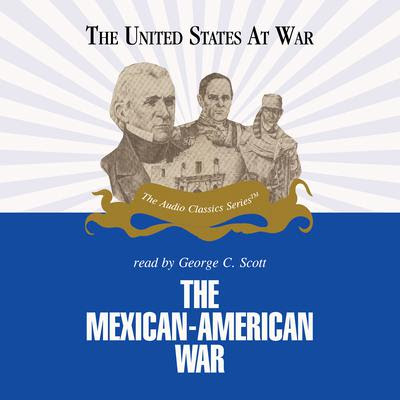Living in Arizona, one doesn’t have to ask why the “Mexican-American War” is important. I live in a part of Arizona that was once part of Mexico, but was transferred to the United States in the treaty that ended the war. The Treaty of Guadalupe Hidalgo had profound and lasting consequences on both the United States and Mexico. By many reckonings, Mexico lost roughly one-half of its territory to the United States. This is the largest territorial transfer of any war in American history.
But how did this war begin? What were the true motivations of the United States in fighting it? Racism and imperialism undoubtedly had something to do with these motivations, especially the “imperialism” part. But this audiobook goes into this in much more detail. For example, they show other territorial disputes that the United States was having at this time. Naturally, this included a number of land disputes with the native peoples of the frontier lands. But it also involved the Oregon boundary dispute with British Canada. In the aftermath of the War of 1812, the British and their Canadian subjects were reluctant to go to war with the United States again. The United States was similarly reluctant to go to war with them. Nonetheless, the negotiations of the Oregon boundary dispute involved intense debates, and the Americans got most of what they wanted in these agreements. Drunk from these diplomatic victories, the Americans eyed further territorial gains to the south, towards the newly-independent Mexican Empire – later to become the “Republic of Mexico.”
Battle of the Alamo, 1836
But there’s another item of historical context, which has received somewhat more attention from the popular historians. This is the Texas Revolution – also known as the “Texan War of Independence.” Mexico had invited Americans to settle in the Mexican state of Texas. But the flood of immigrants overwhelmed them, so they cut it off – or rather, tried unsuccessfully to do so. Nonetheless, a number of Gringos had immigrated illegally into Mexican-controlled Texas. Their United States origins gave them exalted ideas of freedom and independence, and caused them to resent the harsh rule of the Mexican government. Therefore, they revolted against the Mexican government, even after Santa Anna crushed the garrison at the Alamo in 1836. At the later Battle of San Jacinto, Santa Anna was captured, and forced to sign a lopsided agreement with them. Nonetheless, Mexico refused to recognize the independence of Texas in a formal sense.
Battle of San Jacinto, 1836
It was in this climate that the United States intervened on the side of the Texans. In part, they wanted to help the American-born Texans to gain their freedom, but there were also much more selfish motives for this intervention. They wanted to expand the American frontiers, and thus created an incident that would allow them to do so. The incident happened in territory that even the United States had already acknowledged as belonging to Mexico. Nonetheless, when the Mexican military tried to drive the invaders from their territory, President James K. Polk argued that it was “reason enough” to go to war (or words to that effect). The Congress agreed, and thus declared war on Mexico in 1846.
Battle of Chapultepec, 1847
This audiobook gives some excellent coverage of the war’s many battles. But their greatest strength lies in exploring the war’s causes, and helping their listeners to understand why the United States went to war at this time. As Ulysses S. Grant would later argue in his memoirs, the United States wanted more territory out of which they could form slave states for the American Union. In this and other ways, the war with Mexico would later lead to our country’s Civil War, which was an even greater conflict from our point of view. This is another area where this audiobook is particularly good, as they explore the effects of the war – at least upon the United States. (For more about its effects on Mexico, see PBS’s documentary about this subject.) This audiobook’s segments on the war itself are all quite good, but their coverage of its causes and its effects may actually be the best that I’ve heard.
As alluded to above, PBS did a four-hour television series about this conflict, called “The U.S.-Mexican War 1846-1848.” This may be a more appropriate title, since the term “Mexican-American War” makes it sound like one could be describing Mexican-Americans – which is not what the “Mexican-American War” refers to. Although this audiobook does cover the war’s effects on local Native Americans and Hispanics, this is not its primary focus. Rather, their focus is on the traditional “politics and the military” kind of history, which includes the things mentioned earlier.
Antonio López de Santa Anna
I actually think that PBS may be better at covering the war itself, despite my disagreements with some of this film’s bias. But this audiobook may nonetheless be better at exploring why it happened, and in talking about its effects upon the course of American history. At two and a half hours long, this audiobook is somewhat shorter than the PBS documentary, but still spends more time on the areas that it focuses on – which, again, are the war’s causes and effects. This allows it to supplement PBS’s longer coverage of the war itself, and helps the viewer to become more informed about this influential (and controversial) conflict from the 1840’s.
If you liked this post, you might also like:
Part of an audiobook series
The United States at War
The Mexican-American War (1846-1848)
Others to be covered later
See also the audiobook series
The United States Constitution









No comments:
Post a Comment